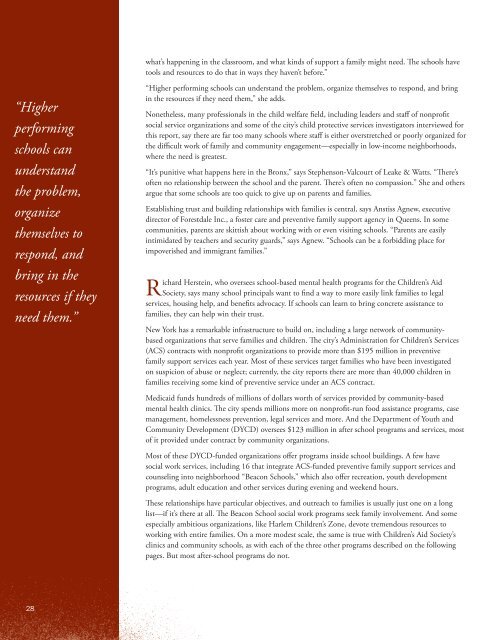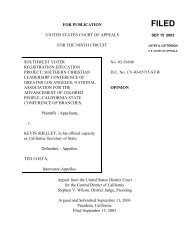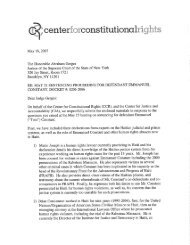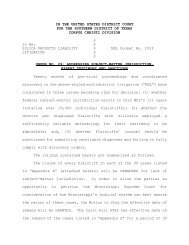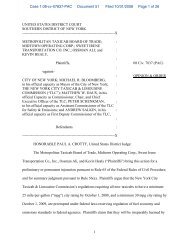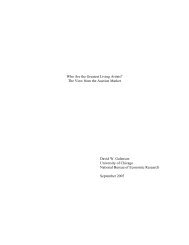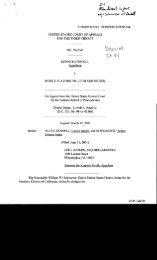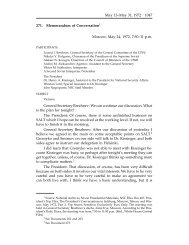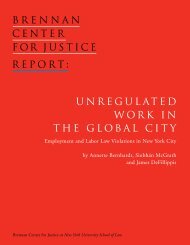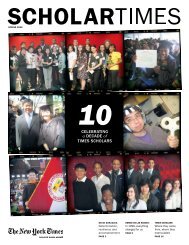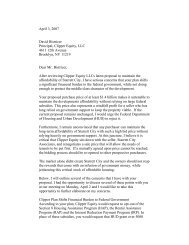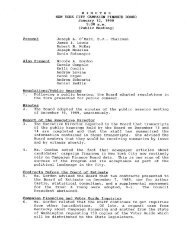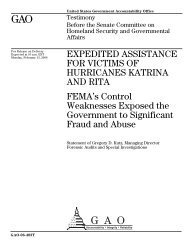Strengthening Schools by Strengthening Families
Strengthening Schools by Strengthening Families
Strengthening Schools by Strengthening Families
You also want an ePaper? Increase the reach of your titles
YUMPU automatically turns print PDFs into web optimized ePapers that Google loves.
“Higher<br />
performing<br />
schools can<br />
understand<br />
the problem,<br />
organize<br />
themselves to<br />
respond, and<br />
bring in the<br />
resources if they<br />
need them.”<br />
28<br />
what’s happening in the classroom, and what kinds of support a family might need. The schools have<br />
tools and resources to do that in ways they haven’t before.”<br />
“Higher performing schools can understand the problem, organize themselves to respond, and bring<br />
in the resources if they need them,” she adds.<br />
Nonetheless, many professionals in the child welfare field, including leaders and staff of nonprofit<br />
social service organizations and some of the city’s child protective services investigators interviewed for<br />
this report, say there are far too many schools where staff is either overstretched or poorly organized for<br />
the difficult work of family and community engagement—especially in low-income neighborhoods,<br />
where the need is greatest.<br />
“It’s punitive what happens here in the Bronx,” says Stephenson-Valcourt of Leake & Watts. “There’s<br />
often no relationship between the school and the parent. There’s often no compassion.” She and others<br />
argue that some schools are too quick to give up on parents and families.<br />
Establishing trust and building relationships with families is central, says Anstiss Agnew, executive<br />
director of Forestdale Inc., a foster care and preventive family support agency in Queens. In some<br />
communities, parents are skittish about working with or even visiting schools. “Parents are easily<br />
intimidated <strong>by</strong> teachers and security guards,” says Agnew. “<strong>Schools</strong> can be a forbidding place for<br />
impoverished and immigrant families.”<br />
Richard Herstein, who oversees school-based mental health programs for the Children’s Aid<br />
Society, says many school principals want to find a way to more easily link families to legal<br />
services, housing help, and benefits advocacy. If schools can learn to bring concrete assistance to<br />
families, they can help win their trust.<br />
New York has a remarkable infrastructure to build on, including a large network of communitybased<br />
organizations that serve families and children. The city’s Administration for Children’s Services<br />
(ACS) contracts with nonprofit organizations to provide more than $195 million in preventive<br />
family support services each year. Most of these services target families who have been investigated<br />
on suspicion of abuse or neglect; currently, the city reports there are more than 40,000 children in<br />
families receiving some kind of preventive service under an ACS contract.<br />
Medicaid funds hundreds of millions of dollars worth of services provided <strong>by</strong> community-based<br />
mental health clinics. The city spends millions more on nonprofit-run food assistance programs, case<br />
management, homelessness prevention, legal services and more. And the Department of Youth and<br />
Community Development (DYCD) oversees $123 million in after school programs and services, most<br />
of it provided under contract <strong>by</strong> community organizations.<br />
Most of these DYCD-funded organizations offer programs inside school buildings. A few have<br />
social work services, including 16 that integrate ACS-funded preventive family support services and<br />
counseling into neighborhood “Beacon <strong>Schools</strong>,” which also offer recreation, youth development<br />
programs, adult education and other services during evening and weekend hours.<br />
These relationships have particular objectives, and outreach to families is usually just one on a long<br />
list—if it’s there at all. The Beacon School social work programs seek family involvement. And some<br />
especially ambitious organizations, like Harlem Children’s Zone, devote tremendous resources to<br />
working with entire families. On a more modest scale, the same is true with Children’s Aid Society’s<br />
clinics and community schools, as with each of the three other programs described on the following<br />
pages. But most after-school programs do not.


